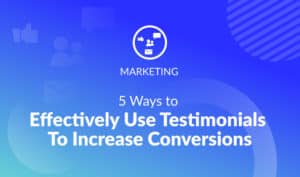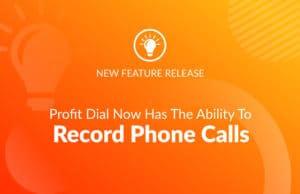Understanding Express Written Consent for SMS Marketing

There has been a lot of buzz in the marketing world lately surrounding TCPA compliance and something referred to as “express written consent”.
What does TCPA stand for anyway?
It stands for the Telephone Consumer Protection Act which was put in place by the Federal Communications Commission (FCC) in 1991. This was done in an effort to protect the privacy of consumers being contacted by businesses via automatic telephone dialing systems.
If you haven't seen it yet, we have an entire guide dedicated to TCPA compliance and the history surrounding it here.
One of the challenges of the FCC now is determining how the laws that were put into place before text messages existed apply to SMS marketing today.
Due to its extremely high open rate, text marketing has become increasingly popular among business owners wishing to communicate with their existing and potential customers.
There are a few key things you need to understand when it comes to protecting your business if you are using SMS to deliver your marketing messages.
Related: 3 Ways to Use Text Message Marketing for Real Estate Investors
Understanding Different Types of Consent
As far as the FCC is concerned, there are 3 main types of consent you need to obtain when it comes to SMS marketing; implied consent, express consent and express written consent.
What is implied consent?
You have implied consent to contact somebody if it's “reasonable to believe” that you have permission to text a contact with conversational messages.

Let's say somebody sends you an email with their phone number in the signature or hands you a business card… it's reasonable to believe you have permission to contact them via the information provided.
You do not, however, have permission to contact them regarding your promotions or services.
What is express consent?
While the TCPA does't specifically define “express consent”, it does state that it is required in an oral or written agreement that clearly indicates consent to receive texts or phone calls at a specific number.

If a contact knowingly provides their phone number to your business throughout the normal course of business, then you have implied express consent from them.
This is the kind of consent required for text communication for informational purposes only.
Examples would be messages from a doctor's office, a school or delivery notifications.
Express consent still doesn't mean the contact is agreeing to receive marketing or promotional messages from you though.
For that, you'll need express written consent.
What is express written consent?
According to the website of the National Do Not Call Registry:
“prior express written consent is a written agreement between the caller and the receiver of the call that clearly authorizes the caller to deliver ‘advertisements or telemarketing messages using an automatic telephone dialing system [(ATDS)]or an artificial pre-recorded voice.' This type of consent must specify the phone number to be called and must also include the receiver’s written or electronic signature, which may be a signed piece of paper, or simply a button press affirming the agreement. You must also disclose that consent is not a condition of purchase.”
Express written consent is never implied or assumed.
You cannot obtain express written consent by burying the request in your terms of service or privacy policy.
There are plenty of ways to receive express written consent digitally though thanks to the FCC expanding the definition to include things like a recorded verbal consent, pressing a button to confirm via recorded phone call, website forms, and optin via text keywords.

Just make sure you are following local state laws as well as E-signature federal laws.
It's important to note that if you are using pre-recorded technology like ringless voicemail, you are also required to obtain express written consent.
What is a great alternative to outbound SMS marketing?
Tried and true inbound marketing strategies like direct mail are more important than ever.
If you haven't yet, check out Profit Drive; our automated direct mail campaign solution for real estate investors.
This will allow you to put your direct mail on autopilot so you can generate more leads and close more deals.
What You Should Do Now:
- Get started with REI Blackbook for FREE: Get 14 days FREE access to our software and start converting more leads into deals.
- If you'd like to learn the exact strategies our power users are implementing to generate motivated seller leads consistently, check out our Motivated Seller Guide.
- If you'd like to learn how our team can build out your REI Blackbook system FOR you, head to our implementation page.
- If you know another real estate investor who'd enjoy reading this page, share it with them via email, Linkedin, Twitter or Facebook.
Unlock the System Top Investors Swear By—Take Back Your Life with a 14-Day Free Trial
Automate Your Business. Close More Deals. Enjoy More Freedom.
- Automate Everything – Put your business on autopilot, from lead follow-up to closing.
- Close More Deals – Use AI tools to quickly spot and lock in the best opportunities.
- Reduce Stress – Streamline your workflow so nothing falls through the cracks.
No long-term commitments. Cancel Anytime















